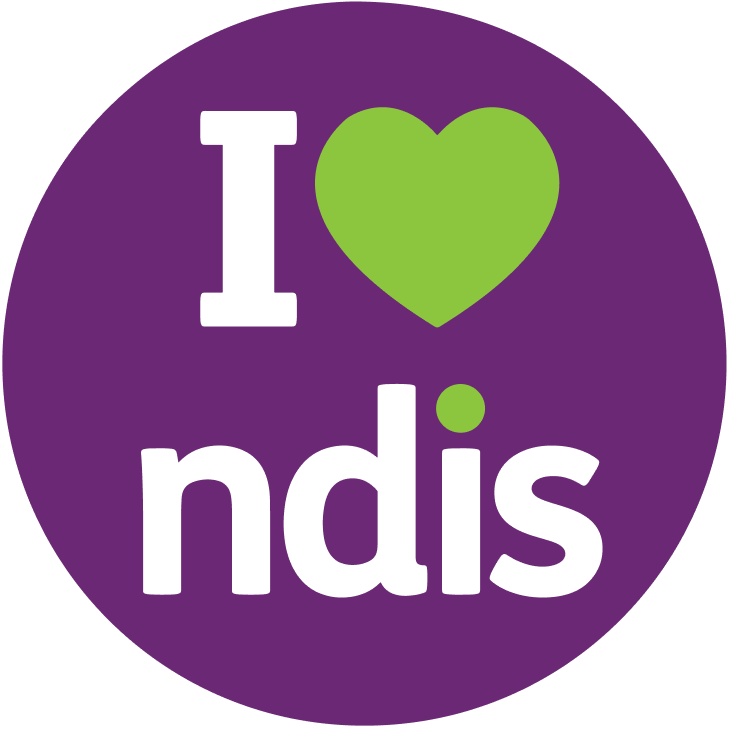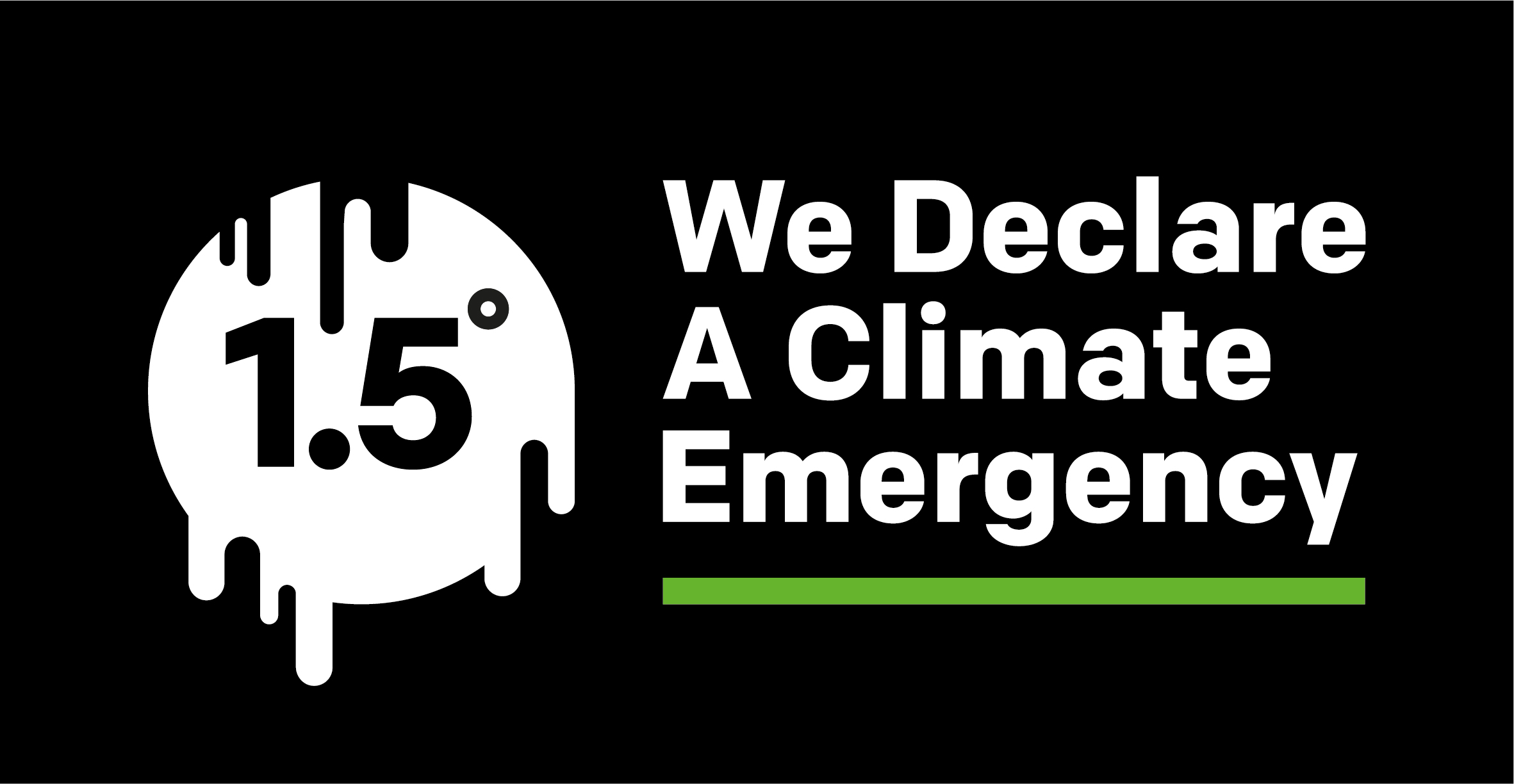Allied Health Assistants Guide
A step-by-step Allied Health Assistants guide and collection of FAQs
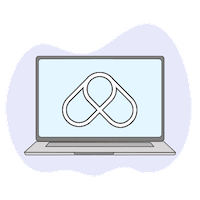
About Fora
Fora’s vision is to enable every person with a disability to work with an efficient and evidence-based healthcare team. Therefore, we aim to create a company and platform that seamlessly connects people with a disability to a healthcare team. In addition, this platform will make it accessible to manage every aspect of their care. Furthermore, it will allow their team to work frictionlessly with each other towards the common goals of their client.
All of Fora’s operations and activities are built upon the Values of:
Balance: The ability to be the best version of yourself in all aspects of life – at work, home, and in the community. To achieve this, it includes having self-awareness of your needs and the perception of those around you. Moreover, it involves being able to manage your time and energy accordingly.
Radical Transparency: Creating a culture that fosters meaningful relationships and work by openly sharing strategies, communicating candidly, and incorporating everyone’s unique perspective. Consequently, we believe that when the truth is uncovered, the highest quality ideas will rise, resulting in the continuous evolution of our company.
Interdependence: Acknowledging that we, as individuals and as a company, are just one part of a whole. Therefore, demonstrating cooperation with our colleagues and wider community partners ensures that we are working towards a collective purpose. Ultimately, this allows people with disabilities to achieve their best outcomes.
Code of Conduct
This code of conduct sets out your responsibilities as a Fora employee and must be upheld by you whenever you’re participating in the Fora community. Whether you are conducting a telehealth therapy session, scheduling a shift via a phone call or text message, working a shift in-person, or interacting with the Fora admin team, these responsibilities apply.
In line with our value for interdependence, we understand that there is a broader ecosystem in our sector of regulations, standards, and procedures that we all need to comply with. Therefore, Fora, and all people working for or on behalf of Fora, will comply with the NDIS Code of Conduct and utilise it as a Staff Code of Conduct.
You must ensure that you are aware of and understand how these regulations, standards, and procedures apply to your work.
In providing supports or services to people with disability, Fora and its staff must:
- act with respect for individual rights to freedom of expression, self-determination and decision-making in accordance with applicable laws and conventions;
- respect the privacy of people with disability;
- provide supports and services in a safe and competent manner, with care and skill;
- act with integrity, honesty and transparency;
- promptly take steps to raise and act on concerns about matters that may impact the quality and safety of supports and services provided to people with disability;
- take all reasonable steps to prevent and respond to all forms of violence against, and exploitation, neglect and abuse of, people with disability; and
- take all reasonable steps to prevent and respond to sexual misconduct.
- You can access the laws and regulations managed by the Commission here.
If you’re based in Victoria, there’s an additional Code of Conduct for disability service workers.
As a registered provider of supports in Victoria, Fora and its staff also have to follow the Victorian Code of Conduct for support workers. The code has five obligations for workers, which you can read here.
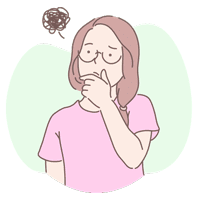
Before you complete your profile
What am I signing up to? What is a therapy assistant?
By creating a Fora profile you’re letting us know you’d like to work casually as an allied health assistant.
An allied health assistant’s role is to help a client build their capacity and increase their independence. They do this by:
- Helping clients to implement the therapy plan and strategies created by a qualified therapist or allied health professional (AHP)
- Seeing clients in-between their appointments with their AHPs
- Helping clients practice and reinforce what they’ve learned with their allied health professionals
Am I suitable to be an allied health assistant?
To be eligible to apply, you must have at least ONE of the following:
- Be currently enrolled in or have graduated from the following accredited Australian university degrees:
- Occupational Therapy
- Physiotherapy
- Speech Pathology
- Completion of a Physiotherapy, Occupational Therapy or Speech Pathology degree at an international university.
Some common questions before signing up:
An allied health assistant can:
- Implement an allied health professional’s (AHPs) therapy strategies and programs in the client’s home or community. This includes instructing, encouraging, and assisting clients in performing therapy-related activities, as well as other daily living activities.
- Interview a client at the Meet & Greet, receive and understand information about a client’s condition and healthcare history at the initial handover with the client’s AHP.
- Help clients in using assistive technology or supportive devices if required.
- Document sessions, progress and collect data via online timesheet and note-taking tool.
- Relay the information provided by the client’s allied health professional to the clients and their carers; i.e. therapeutic regimens, general information, and promoting wellness and health maintenance.
- Attend and observe a session between the client and the client’s allied health professional with permission from the client/client’s parent or guardian and AHP.
- Maintain and monitor goal objectives as specified by the client’s allied health professional.
- Contribute to an allied health professional’s effectiveness by identifying client care issues.
- Maintain regular communication with the client’s allied health professional.
By creating a Fora worker profile you’re letting us know you’d like to work casually as an Allied Health Assistant (AHA).
An allied health assistant’s role is to help a client build their capacity and increase their independence. You would do this by:
- Helping clients to implement the therapy plan and strategies created by a qualified therapist or allied health professional (AHP).
- Seeing clients between their appointments with their AHPs.
- Helping clients practise and reinforce what they’ve learned with their allied health professionals.
It is crucial to recognise that an allied health assistant does not replace an allied health professional.
An allied health assistant MUST NOT:
- Make an assessment, diagnosis or treatment plan for a client.
- Modify a treatment plan in a way that has not been recommended by a therapist.
- Verbally or in-writing make recommendations or suggestions about the treatment plan.
- If therapy assistants are ever asked to write a report for the client, it must be strictly from a reflective and objective perspective.
- I.e. therapy assistants can only make comments about their experiences and progress witnessed in the time working with the client. They must not include their opinions about what they think has or hasn’t been working, or what should be done next.
- Share personal information about a client to any person outside the client’s therapy team.
- All client information must be kept strictly confidential. This means de-identifying any information (not naming clients, their suburb, their place of work or school, their disability) when discussing work outside of Fora or with the client’s healthcare team. This includes any private discussion with friends or family or public discussions like in a hospital or university class.
Our allied health assistants handle caseloads of a variety of ages (from infants to the elderly) and conditions (physical and intellectual disabilities):
- Paediatric clients have conditions that include ASD, ADHD, speech delays, global developmental delay, cerebral palsy, global coordination disorder, down syndrome, intellectual disability.
- While adult clients present conditions such as post-stroke, multiple sclerosis, acquired brain injury, geriatrics, multiple sclerosis, muscular dystrophy, Parkinson’s disease and others.
- Physiotherapy allied health assistants often work with
- children living with cerebral palsy, muscular dystrophies, developmental delay, and
- adults who have had strokes or acquired brain injuries.
- They handle muscular and neurological-based caseloads with a mix of tasks including rehabilitation, mobilisation, pain management, and preventative techniques.
Occupational therapy allied health assistants:
- Work with clients of all ages.
- Tasks may include helping children with emotional regulation, routine management, practising fine and gross motor tasks, or assisting with hydrotherapy.
- Help young adults with community engagement, public transport training and developing independence with ADLs. OT allied health assistants often work with children living with autism spectrum disorder, ADHD, sensory processing disorder, and other intellectual disabilities.
Speech Pathology allied health assistants:
- Work with clients of all ages.
- Tasks include helping non-verbal individuals use augmentative and alternative communication devices, supporting individuals with social skills, and helping children reach developmental milestones.
- Speech Therapy allied health assistants often work with children with autism spectrum disorder, developmental delay and other speech disorders.
You have no strict requirements regarding support work and personal care. You will be provided with information about a client’s needs before you apply to work with them.
An allied health assistant’s primary role is to help build a client’s capacity. This said, sometimes your role and responsibilities won’t appear ‘therapeutic’, e.g helping a client with an intellectual disability to get ready for school. However, it is important to remember that there are strategies you can use to help organise their thoughts and executive planning to increase your client’s independence.
When supporting a client in everyday tasks, remember to keep a client’s goals in mind and implement therapy strategies where appropriate. You can ask the client’s allied health professional to provide guidance on how to do this.
It’s a good idea to chat about any non-therapeutic work that the client may need help with while you’re working with them during your meet and greet. Depending on what your clients need are and how comfortable you feel with the type of additional activities they are requesting, you can decide how you would like to proceed.
You can
- let them know you’d like to work with them but would prefer not to assist with anything that is non-therapeutic,
- let them know you’d like to work with them but ask them to modify the activities to a level you feel comfortable helping with, or
- choose not to proceed.
The main thing to keep in mind is that it’s always better to be open and honest from the get-go.
For clients, families, allied health professionals, and Fora to feel comfortable that you have the skills to be an allied health assistant, ideal candidates have the following experience and skills:
- Work or volunteer experience working with children and adults with disabilities or mental health disorders
- Completion of university or TAFE placements working with children or adults
- Professional (paid work or volunteer) experience and/or personal experience with people with disabilities is also highly regarded (for example, support work, tutoring, babysitting, sports or swim coaching, special-school aiding or volunteering at disability organisations).
If you are in the earlier stages of your degree and do not have a lot of experience, you can still become an allied health assistant. In this case, we recommend you apply only to work with clients with low needs.
When working with a client with low needs, your role might be similar to that of a support worker. A support worker is somebody that helps an individual in their activities of daily life. These roles may require no input from allied health professionals and might be unrelated to your therapy domain.
They may involve tasks like:
- Supporting somebody to attend social and community activities
- Assisting with everyday activities such as grocery shopping, cooking a meal, completing homework or getting ready for school
- Pick-up and drop-offs to school or therapy sessions, as some people do not have the capacity to independently take public transport
These roles are a great way to develop your experience in working with people with disabilities and may allow you to step into more therapy-based roles later in your studies.
To be eligible to apply, you must have at least ONE of the following:
- Be currently enrolled in or have graduated from the following accredited Australian university degrees:
- Occupational Therapy
- Physiotherapy
- Speech Pathology
- Completion of a Physiotherapy, Occupational Therapy or Speech Pathology degree at an international university
- Completion of a Certificate IV in Allied Health Assistance
- Both Fora and the allied health assistant will fill out a worker injury claim form
- We will send the form to our insurance company
- The insurance company will investigate
- The insurance company decides next steps and informs parties involved
- Fora assumes all responsibility for the actions of our allied health assistants and provides all the necessary insurances, i.e. Professional Indemnity, Public Liability and WorkCover Insurance.
- A client’s AHP is not liable for the actions of Fora’s allied health assistant.
- Allied health assistants do not fall under the professional indemnity insurance of client’s therapists, they are covered by Fora. This said, it is expected that tasks are delegated within the competency of the family or allied health assistant.
- This means we are responsible for everything an allied health assistant does as long as what you’ve delegated to them is within their competency
- i.e. if they are following your plan and make a mistake or go out of scope it’s under our liability
- if you delegate something that is not appropriate for the client or the allied health to do, and then it’s under your liability
- Fora will remove allied health assistants from any role/s where:
- there is an unsafe work environment
- they are not appropriately guided by an AHP”
For sessions less than 2 hours long the pay structure is as follows:
| Day | Minimum pay per session | Minimum pay per session incl. superannuation |
| Weekdays | $60.80 | $67.18 |
| Saturday | $77.40 | $85.52 |
| Sunday | $99.60 | $110.05 |
For 1.5 hour sessions, note-writing time will now be included in the 2-hour minimum pay.
For sessions lasting 2-hours or more the pay structure is as follows:
| Day | Pay per hour | Pay for note-writing | Minimum pay per session |
| Weekdays | $36.00 | $5.70 | $85.86 |
| Saturday | $49.00 | $5.70 | $114.59 |
| Sunday | $62.00 | $5.70 | $143.32 |
| Public Holidays | $65.00 | $5.70 | $149.95 |

The sign up process
I meet prerequisites and want to become a therapy assistant, how do I start?
Complete the modules outlined in your therapy assitant portal. You will need some documents to get started so be sure to have the following with you:
- Working with children check
- National Police Check (if you don’t have one of these you can apply to get one through Fora during the signup process)
- Your student card, proof of enrolment or certificate of completion
- First Aid Certificate
- Details of two professional referees
Some common questions about the sign up process:
We aim to complete the verification process within 24 to 48 hours. This is largely affected by the completeness of the documents you submit and how quickly your referees get back to us.
Your profile is visible to the Fora Team and clients you have applied to work with.
It’s good to keep in mind that your profile is the only information prospective clients are provided with initially. This means the information you provide helps clients make a decision on whether or not to organise a Meet & Greet with you. So make sure you give it your best shot!
- Create a Fora account: https://www.foratherapy.com/get-started/
- Complete your profile before the interview which includes the following info
- Name
- Contact details
- Field of study
- Relevant experience through paid work, volunteer, placement
- Book an interview with us. Please note that all online modules and check applications are only required after you have passed the interview.
During your interview we discuss:
- Your experience
- Your availability
- Where you want your career to take you
- Your understanding of the role of an allied health assistant
- Your understanding of the allied health assistant Guidebook and these FAQs
This helps us to understand you and your readiness to begin working with vulnerable people.
Your references will be contacted for a background check.
After the interview you will be notified whether or not we think you are appropriate to work as an allied health assistant.
If the answer is yes, you’ll be invited to finalise verification. This involves:
- Submitting identification documents (to allow us to complete a 100 point identification check)
- Passport or other primary identification document
- Drivers licence or other ID document
- Visa (if required)
- Adding your financial details (so we can pay you)
- Bank accounts and BSB
- Superannuation details
- Tax file number declaration
- Submit your completed orientation modules
- NDIS worker’s orientation Module: Quality, safety and you
- Fora OH&S module
- Infection Control
- PPE Certificate
- Read and sign your employment Agreements
- Agree to be checked against the Disability Workers Exclusion List
- Agree to the Fora terms and conditions
After passing the interview, the Fora team will need to verify your documents and conduct checks. Once positive results come back, you will receive a welcome email from us.
When you become part of our allied health assistant team, you will be email alerted to opportunities within a 20-minute drive from your location via your account dashboard.
You can refine your profile and apply to work with clients as you wish.
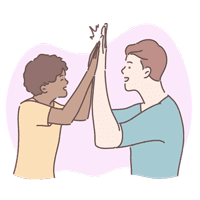
Applying to work with clients
I’ve been verified, now what?
You can now start applying to work with clients.
You will see a list of potential clients on your dashboard. View their de-identified profile and follow the prompts to add your availability and submit your application.
Some common questions about applying to work with clients

Meet & Greet
What is a Meet & Greet?
The initial session is a 30-minute to 1-hour, uncharged and unpaid meeting with the client and/or the client’s family. You can read more about the Meet & Greet in the meet and greet guide
This first meeting is about two things:
- Building rapport
- Understanding the client’s needs.
If you were the manager of a cafe, you wouldn’t hire a staff member without ever having met them in person. The same can be said of clients and their families. They want to meet you and discover whether your personality will be a match for them before they commit to working with you long-term.
Families want to know that you are proactive, trustworthy and reliable.
At the same time, you wouldn’t want to start working in a position you knew nothing about. We give you an overall picture of the client’s goals and needs, but we can never explain all the fine details. Just as we want the client to feel like you’re a good match, we also need you to feel comfortable, supported and excited about starting with the client.
Please note that a representative from Fora will not be at the Meet & Greet (there just aren’t enough of us!). Sometimes, the client’s AHP or support coordinator will be there.
Some common questions about Meet & Greet sessions
Yes, allied health assistants must log their meet and greets.
All sessions with your client (in-person, telehealth, meet and greet, allied health professional handovers, etc.) need to be logged for progress tracking and insurance purposes.
The Meet and Greet is an opportunity for the client and their family to get to know the allied health assistant and vice versa. It is uncharged and unpaid.
You can read more about the Meet & Greet in the meet and greet guide
This initial meeting is an opportunity to:
- Interact, engage and build rapport with each other
- Discuss availability for ongoing sessions (especially long term planning, including upcoming holidays, exams or placements)
- Discuss therapy goals for the client, the allied health assistant’s experience level and expectations during sessions
Families want to know that you are proactive, trustworthy and reliable.
At the end of the meet and greet, everyone should have enough information to know whether it’s a good personality and experience fit and whether they feel comfortable committing to working together.
Please note that a representative from Fora does not attend this meeting. Sometimes, the client’s AHP or support coordinator will be there.
Before the meet and greet, please read the meet and greet guide to prepare for the discussion.
You can use this guide as a checklist of discussion points during the meeting to ensure you do not forget the range of topics to discuss.
Also, ensure you do the following:
- Re-visit the client notification that was sent and research the client’s condition if you are unfamiliar with it.
- Dress appropriately and be well-groomed – we recommend dress code ‘business casual’, i.e. dressing like you are going for an interview.
- Aim to arrive 10-15 minutes early – as you may incur unexpected traffic, get lost, or not be able to find the location straight away.
- Be proactive in conversation – take a strengths-based approach. Focus on the person, their interests, and how you can support them to achieve their goals
- Speak to all members of the family if they are present
- Prepare a short 1-minute spiel about yourself, your interest in working with the family and all your relevant skills and experiences.
- Thank the client and/or their family for their time
After the meeting, we will contact you to see how you felt about the client or client’s family and if you feel comfortable continuing. Likewise, we will contact the client and/or their family separately.
If you both decide to proceed, Fora will send you an email about the next steps; organising a Team Meeting with the client’s allied health professional.
Sometimes, the family won’t want to work with an assistant for a few reasons:
- Availability mismatch
- Inadequate experience
- Personality mismatch
It is important to remember not to take this personally, there are many factors to consider when trying to find a good match.
No, allied health assistants are not paid for a meet and greet.
The initial session is a 30-minute to 1-hour, uncharged and unpaid meeting with the client and/or the client’s family. Think of this session as a two-way interview.
If you ran a business, you probably wouldn’t hire someone without ever having met them in person. The same can be said of clients and their families. They want to meet you and discover whether your personality will be a match for them before they commit to working with you long-term.
At the same time, you wouldn’t want to start working in a position you knew nothing about. We give you an overall picture of the client’s goals and needs, but we can never explain all the fine details. Just as we want the client to feel like you’re a good match, we also need you to feel comfortable, supported and excited about starting with the client.

Team Meeting
I’ve met the client and we both want to proceed, what’s next?
We need to have the client’s AHP delegate some tasks to you. Usually this occurs by having you attend and observe one of your client’s regular therapy sessions.
If you are unable to attend your client’s regular therapy session, handover can occur via telehealth or over the phone.
Some common questions about your AHP handover and ongoing sessions:
Therapy assistants can only start working on therapy goals after they participate in a Team Meeting.
Read about what happens during a Team Meeting here.
It is an opportunity for therapy assistants to be provided with a clear therapy plan and guidance on how to implement therapy interventions in a safe and effective manner. The therapy assistant can observe how the AHP conducts sessions and clarify anything in the plan that they are unsure about prior to beginning independent sessions.
If it is not possible for the Team Meeting to occur in person, Team Meetings can be completed via telehealth or over the phone.
Yes, therapy handovers are acceptable if participants feel that it is unsafe to conduct in-person sessions, and/or all parties agree.
These sessions can be conducted via Google Hangouts or your preferred software, i.e. FaceTime, Zoom, etc.
If you would like assistance setting up telehealth, please feel free to give us a call on 1800 921 422.
Firstly, great job!
Now that both you and the client are committed to working with each other, we’ll need to organise for the client’s Allied Health Professional (AHP) to delegate some tasks for you to help your new client practice. We call this a Team Meeting.
Usually, this occurs by having you attend and observe one of your client’s regular therapy sessions.
But, if you are unable to attend a session between the client and their AHP, your handover session with the AHP can occur via telehealth or over the phone.
We work with the client and their family to get you linked with their AHP. Once linked, a therapy handover from the client’s AHP should provide you with a clear understanding of the client’s current goals, the interventions prescribed and any strategies employed to get the most out of the client. This can occur in two ways:
Option 1: Ideally, you attend a session with the AHP and the client (in-person or video telehealth). If option 1 is difficult to coordinate due to timetable constraints, we try option 2.
Option 2: The client’s AHP provides you with a written therapy plan to read and you receive a phone handover from the client’s AHP to iterate and clarify everything in the therapy plan.
We aim to provide you with enough support to feel comfortable in your role and assist your client to achieve their goals. If something concerns you, or you feel unsupported or out of your depth, please contact a team member for a chat.
According to NDIS regulations, Fora’s allied health assistants need to be linked with their clients’ therapists on an ongoing basis.
Your first therapy assistant session after the meet-and-greet should be a team meeting between you and the client’s AHP.
You cannot work independently with the client until this handover occurs.
From then on, at the very least you should be in contact with the allied health professional at a minimum of every 6 weeks after that to ensure you are receiving up-to-date therapy plans and strategies according to the client’s progress.
Please discuss with the family and the client’s AHP whether:
- You will sit in on subsequent review sessions, or if this clashes with your schedule
- You will remain in email contact with the client’s AHP, or
- You will remain in phone contact with the client’s AHP
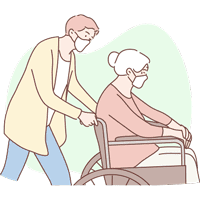
Regular assists
I’ve had a Team Meeting with the client’s AHP and I feel like I know what I’m doing, where to from here?
You’re ready to go! At this point sessions occur independently between the therapy assistant and client. You imlement the therapy plan handed over to you by the client’s AHP and use any strategies they have provided to get the most out of your client.
At the completion of each session you log your assist via the Fora website.
Some common questions about regular sessions:
Fora has a 1.5 hour minimum session time for all sessions, except public holidays which have a 2-hour minimum.
Client’s utilising Core Support funding have a 2-hour minimum for all sessions.
To book sessions, you will need to speak with your client directly or via phone or email. Usually the client or the client’s family will reach out to the therapy assistant (or vice versa) at the start of each week via SMS to book in a session time.
Scheduling operates on a casual basis and is entirely dependent upon your availability. This allows you to manage your time and alter hours of availability for shifts with clients around university course load, placements, and exams.
We work with a lot of students and understand that availability can change depending on placement schedules and university timetables. Given the ever-changing nature of students’ schedules, you are encouraged to inform your client’s with your schedule changes as soon as possible.
The number of hours you’re likely to work depends on each individual client.
Clients typically have a 1.5-hour minimum session time, and some have a 2-hour minimum. Please ask us if you’re not sure what your client has.
So if you are working with 1 client, your minimum hours per week would be 1.5 or 2 hours. Make sure you’re reminding them that if they want sessions shorter than their minimum, they’ll still be charged according to their minimum.
You are expected to work with each client long-term (ideally more than 6 months), as often it takes a month or two to get familiar with the individual and their therapy routine.
If you would like more hours you can elect to take on more clients. But is essential that you don’t over-commit or promise to work with clients when you don’t think you could commit to working with them for at least 6 months.
Typically allied health assistants work in their client’s homes, however the location of sessions will depend on the client’s goals. Sessions can occur in gyms, swimming pools, a local sport or recreation facility, library, schools, aged care facilities or elsewhere in the community.
This depends on your own capacity to handle your workload and is your decision. Some therapy assistants are happy working with one client, but there are others who can manage multiple clients with full-time study.
If you would like more hours you can elect to take on more clients. But is essential that you don’t over-commit or promise to work with clients when you don’t think you could commit to working with them for at least 6 months.
Please call or text us the details so we know that you are away (otherwise, we may be worried that you aren’t responding to our calls or messages).
If you are going to be on placement, please discuss with the family if any alternative arrangements can be made. For example, working in the evenings or on weekends. If this is not possible and they are looking for somebody to fill in, please give us advanced notice so we can organise a replacement if necessary.
Since you are a casual employee, there is no set notice period. Just let us know as soon as possible. Depending on your circumstances, we may ask you to continue working any clients in your caseload for a short time after you’ve given notice to ensure continuity of care.
You will be linked with the client’s allied health professional before you start working independently with the client. The allied health professional will either provide a verbal handover or allow you to sit in on consultations.
An advisor at Fora will provide non-clinical support for your role. They help in setting up initial meetings and organising check-in and debrief sessions to ensure everything is running smoothly.
Your point of contact will vary depending on what type of information you are seeking.
Here are the three main contacts in each therapy assistant and client relationship and what you would reach out to each of them for:
- Client or client’s main carer:
- Anything related to client and how you can build rapport
- Please note that at times a client’s carer may try to direct you on the type of therapy you implement, this is okay if it’s within the parameters set by the AHP. If it’s outside of this or has not yet been discussed, it’s best to double check with Fora before implementing something you’re unsure about.
- Client’s allied health professional
- Therapy plan and strategy related questions
- Progress or regression of client
- Fora
- Fora website, payments, insurance, feedback
- Anything else
Under the NDIS Practice Standards, therapy assistants must meet the following quality indicators in order to ensure clients’ assets are secure and can be used under the client’s autonomy:
- Clients money or property can only be used with their consent, and only for purposes specified by the client. If a provider (or worker) is given access to the client assets, there must be a process enacted to ensure the assets are protected, managed and accounted for.
- Clients should be supported to access and spend their own money as they wish.
- Clients are not given financial advice or information.
In general, Fora does not recommend that a therapy assistant handle a client’s money or property.
For example, therapy assistants should not take money from a client to make a purchase for them when they are not present or take a client’s bank card to withdraw money out of an ATM for them.
A situation where a therapy assistant can ‘handle a client’s money’ might be if they are at the shops and the therapy assistant is assisting the client with transferring the money to the vendor or if the client requests assistance with counting cash or change.
You are covered for professional indemnity and public liability for:
- Allied health insurance
- exercise physiology
- physiotherapy
- psychology
- speech therapy
- occupational therapy
- hydrotherapy
- community and disability services
You are covered for any injury that may arise from your work by WorkCover insurance.
Please note that if you elect to transport clients in your car, any incident or damage that occurs to your car, or any person in it, while you are driving to and from work or transporting a client, is not covered by our insurance. You must have third party insurance or comprehensive insurance that covers you for business purposes.
The main thing is to be fully transparent and professional with your client at all times.
If you believe there will be a potential change or there is an unexpected change in your schedule, please let the client and Fora know as soon as possible. This allows the client to prepare for a change in advance, i.e. they might start organising a replacement therapy assistant before you are expected to pause or cease working with them.

Transporting clients
Am I allowed to transport clients?
Fora allows therapy assistants to transport clients if they have an unrestricted Australian drivers licence. You can elect whether to transport clients in the “edit profile” section, after you’ve been verified.
Some common questions about regular sessions:
It is not mandatory that therapy assistants transport their clients.
However, if you have a full drivers licence and you would like to provide this service, you can choose this setting on your Fora profile.
If you are providing transport (whether in your own vehicle or someone else’s) you have an obligation to:
- Provide and maintain a current and valid Australian drivers licence
- Hold Compulsory Third Party (CTP) insurance and check that you are insured to drive for business purposes.
- Enter accurate records relating to your transport work via the Fora platform
- Notify Fora immediately of any licence cancellation
- Notify Fora of any medical condition that may prevent you from safely providing transport.
- Agree to inform Fora via email in the case of any incident or near miss event.
- Consider keeping a first aid kit in your car
If you are providing transport to clients in your own car, you must:
- Maintain the vehicle in a safe, clean and roadworthy condition.
- Conduct an annual visual Vehicle Inspection to ensure it is roadworthy
- Ensure the vehicle is maintained and serviced, as outlined in the owner’s manual.
- Register your vehicle with the relevant body and ensure the registration is maintained.
- Hold Compulsory Third Party (CTP) insurance and check that you are insured to drive for business purposes.
- Think about your insurance needs and consider obtaining Comprehensive Vehicle Insurance.
- Keep accurate records of the trips you have made using your own vehicle when logging your assists.
- Consider keeping a first aid kit in your vehicle.
- Understand that you are fully responsible for your vehicle in the event of any claim that arises as a result of an accident, in conjunction with your insurer.
Remember by choosing to drive your own vehicle you are taking on the liability for any damage caused to your vehicle (or another vehicle involved in an accident).
If you choose to provide transport to a person seeking support using their vehicle you must:
- Request to see a copy of the registration certificate of the vehicle prior to driving.
- Request to see a copy of the Compulsory Third Party (CTP) insurance for the vehicle.
- Request to see a copy of any other insurance policies.
- Complete a visual inspection of the vehicle prior to driving to ensure it is safe.
- Request training from the vehicle’s owners, to ensure you understand how to effectively operate the vehicle.
It’s important to understand that users seeking support’s vehicles are not covered by Fora’s insurance, so the liability is shared by you and the user seeking support – that’s why it’s really important that you check their insurance coverage.
Travel allowance applies only for the times you are transporting a client in your car.
For example, if you are driving your client in your car to a therapist appointment, or somewhere related to their therapy plan like a gym, swimming pool or a social event/ activity.
Travel allowance is $0.99 per kilometer travelled. This is paid on top of your hourly wage to compensate you for fuel and wear & tear on your car. It will be delivered to you with your usual pay.
Travel allowance is not provided for the times that you are driving to and from the client’s house.
At Fora, our allied health assistant and client’s safety is paramount.
Passengers can often be a dangerous distraction for newly licensed drivers. For this reason, we require our allied health assistants to have an unrestricted Australian driver’s license before they can transport clients.
When you get your full license, please upload it to your profile and notify a Fora team member to review.
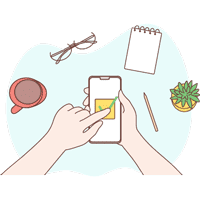
Logging assists and getting paid
I’ve had some sessions with my client, how do I log my assists?
From your dashboard on the Fora website, click on the ‘Assists’ tab in the left side menu, or click here.
When you start typing your client’s name, you should see your clients listed there and the logging hours process should be straight forward – follow the instructions to log your timesheet.
Please log your assists immediately after each session to ensure that you the client is invoiced appropriately and you are paid on time.
Some common questions about logging your assists and receiving payments:
As of September 6th 2021, pay rates for allied health assistants will be:
- Weekdays: $36.00 per hour
- Saturday: $49.00 per hour
- Sunday: $62.00 per hour
- Public Holiday: $76.00 per hour
- PLUS 10 mins of note-taking time + superannuation for every session
- Sessions with an AHP, preparation time, report-writing: $36.00 per hour
Payroll is every fortnight. To be paid correctly and for your client to be invoiced accurately, please ensure you log your assist after your session or within 24 hours.
If you have any questions about logging your assist, please email us at info@foratherapy.com or call us on 1800 921 422.
Your sessions may not have been logged before the cut-off day for payroll. This means that you will be paid for these sessions in the next pay period.
Please call us on 1800 921 422 as soon as possible so we can fix the error that was logged.
To change or update your bank details or superannuation information, please email accounts@foratherapy.com.
Your travel allowance will be included in your pay period. You should only select the travel allowance option if you and your client’s family have an agreement with this.
No, allied health assistants are not paid for a meet and greet.
The initial session is a 30-minute to 1-hour, uncharged and unpaid meeting with the client and/or the client’s family. Think of this session as a two-way interview.
If you ran a business, you probably wouldn’t hire someone without ever having met them in person. The same can be said of clients and their families. They want to meet you and discover whether your personality will be a match for them before they commit to working with you long-term.
At the same time, you wouldn’t want to start working in a position you knew nothing about. We give you an overall picture of the client’s goals and needs, but we can never explain all the fine details. Just as we want the client to feel like you’re a good match, we also need you to feel comfortable, supported and excited about starting with the client.
For sessions less than 2 hours long the pay structure is as follows:
| Day | Minimum pay per session | Minimum pay per session incl. superannuation |
| Weekdays | $60.80 | $67.18 |
| Saturday | $77.40 | $85.52 |
| Sunday | $99.60 | $110.05 |
For 1.5 hour sessions, note-writing time will now be included in the 2-hour minimum pay.
For sessions lasting 2-hours or more the pay structure is as follows:
| Day | Pay per hour | Pay for note-writing | Minimum pay per session |
| Weekdays | $36.00 | $5.70 | $85.86 |
| Saturday | $49.00 | $5.70 | $114.59 |
| Sunday | $62.00 | $5.70 | $143.32 |
| Public Holidays | $65.00 | $5.70 | $149.95 |
We’ve created a new minimum pay rate for sessions under 2 hours long as you’ll be paid for a minimum of 2 hours whenever you’re engaged by a client from July 1st 2022.
Since the minimum session time for most clients is 1.5 hours, many client will opt for 1.5-hour sessions and not 2-hour sessions. In which case Fora will still pay you at the minimum 2-hour rate for sessions like these.
You will receive a link to join YourPay by MYOB. It stores your 5 most recent payslips.
Please do not use this app to put in your hours.
If you work in excess of 5 hours, you will be entitled to an unpaid meal break of 30 minutes.
As your employment is on a casual basis, you are not entitled to paid annual leave, personal/carer’s leave and compassionate leave. You are, however, entitled to unpaid compassionate leave in accordance with the Fair Work Act 2009 (Cth) (“FWA”).
You are entitled to reasonably seek a day off on a public holiday in the State or Territory in which you are employed.
If you are required to work and choose to accept a shift on a Public Holiday, you will be compensated in accordance with the applicable award (if any).
FairWork is a government organisation that decides the minimum standards for employees. When creating jobs, all employers must comply with the rules FairWork sets out.
Fora’s allied health assistants (AHAs) fall under the Social Community Home and Disability Services (SHADS) Award. Any changes that occur to this award will affect Fora and our AHAs.
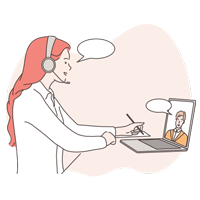
Feedback and problem solving
How can I give feedback?
Please contact the Fora support team directly via phone or email for any type of feedback, concerns, questions, extra support or just to have a chat.
We are available via phone and email between Monday to Friday 9am – 5pm.
Feedback that you should contact us about immediately include:
- It has been difficult organising sessions with your client, or if they are consistently cancelling
- You are concerned that the client’s AHP does not implement evidence-based practice
- You feel concerned about your or your client’s safety
- You are uncertain your role fits within your scope of practice
- You need coaching through your first client to make sure you feel comfortable
Some common questions about logging your assists and receiving payments:
If this is a medical emergency, serious injury or if you are unsure, you should first contact emergency services on 000.
When an incident occurs at Fora, the following steps should be taken to submit an incident report to Fora’s website:
- Document the incident: Record all details and relevant information about the incident, including date, time, location, and any witnesses.
- Notify the relevant people: If the incident involves an NDIS participant, notify the participant, their family or carer, and any relevant support workers. If the incident involves another staff member, notify their supervisor.
- Complete the incident report form on the Fora Therapy website: Fill out the incident report form, providing as much detail as possible about the incident and the actions taken.
- Submit the report within 24 hours of the incident occurring.
What is an NDIS Reportable Incident?
According to the NDIS Practice Standards and Quality Indicators, an incident is reportable if it involves:
- The death of an NDIS participant or any other person
- Serious injury or harm to an NDIS participant, including physical or psychological harm
- Any allegation of abuse or neglect of an NDIS participant, including physical, sexual, emotional, or financial abuse
- Unlawful sexual or physical contact with, or assault of an NDIS participant
- A missing NDIS participant, where there is a significant risk to their health and safety.
Please contact the Fora support team directly via phone or email for ANY type of feedback, concerns, questions, extra support, or just to have a chat.
We are available via phone and email between Monday to Friday 9am – 5pm.
The feedback that you should contact us about immediately include:
- It has been difficult organising sessions with your client, or if they are consistently cancelling
- You are concerned that the client’s AHP does not implement evidence-based practice
- You feel concerned about your or your client’s safety
- You are uncertain your role fits within your scope of practice
- You need coaching through your first client to make sure you feel comfortable
If this is something you may have witnessed whilst working with a client, or something you’re worried about you can speak with Fora or The National Disability Abuse and Neglect Hotline.
The National Disability Abuse and Neglect Hotline (The Hotline), is a free, independent, and confidential service for reporting abuse and neglect of people with disability.
Anyone can contact the Hotline, including family members, friends, service providers, or a person with disability. The Hotline works with callers to find appropriate ways of dealing with reports of abuse and neglect of people with disability.
To make a report, contact the Hotline on 1800 880 052 or send an email to: hotline@workfocus.com.
The Hotline is not a crisis service. In case of life-threatening situations call 000 for attendance by Ambulance, Fire, or Police services. If you think a crime has been committed or is being committed, contact your local police.
If this is a medical emergency, serious injury or if you are unsure, you should first contact emergency services on 000.
If you need to speak urgently with a Fora team member, please call 1800 921 422 and stay on the line until a team member is able to answer.
We work towards providing a high level of service and support for our customers and workers. Please share your feedback with us – complaints, compliments and suggestions will help us to better our service in order to assist you.
For Fora Customers:
- You can lodge a complaint online or over the phone.
- Email info@foratherapy.com and someone will get in touch with you.
- Call 1800 921 422 between 9am and 5pm, Monday to Friday.
- Speak with us on live chat between 9am and 5pm, Monday to Friday.
For Fora Workers:
- You can lodge a complaint online or over the phone.
- Email info@foratherapy.com and someone will get in touch with you.
- Call 1800 921 422 between 9am and 5pm, Monday to Friday.
- Speak with us on live chat between 9am and 5pm, Monday to Friday.
Other complaints:
We are unable to deal with complaints about:
- The National Disability Insurance Agency (NDIA)
- Access to the NDIS
- Decisions about NDIS participant plans.
You can speak to the NDIA to make a complaint about these.
If you’re not sure who to talk to about your complaint, contact us and we can help direct you to the right place.
Making a complaint about Fora:
A complaint can be made to the NDIS Commission by:
- Phoning: 1800 035 544 (free call from landlines) or TTY 133 677. Interpreters can be arranged.
- National Relay Service and ask for 1800 035 544.
- Completing a complaint contact form.
The NDIS Commission can take complaints from anyone about:
- NDIS services or supports that were not provided in a safe and respectful way
- NDIS services and supports that were not delivered to an appropriate standard
- How an NDIS provider has managed a complaint about services or supports provided to an NDIS participant
It’s important for you to know what restrictive practice is when working as an AHA to ensure that:
- You are avoiding the risks of applying it and
- You know how to report if used within the workplace.
DEFINITION:
- VIC Health definition“The use of restraint is a significant infringement of a person’s right to free movement, privacy, liberty and freedom from medical treatment without full, free and informed consent. Restraint should only be used as last resort after other options have been considered and excluded, and for the purpose of protecting the person from an immediate, imminent and significant risk to their health or safety.” Victorian Government Department of Health (2010).
- NDIS definitionThe National Disability Insurance Scheme (NDIS) Act 2013 (Section 9) defines a restrictive practice as ‘any practice or intervention that has the effect of restricting the rights or freedom of movement of a person with a disability’.
TYPES OF RESTRICTIVE PRACTICES
- Chemical Restraint
- The use of medication to control a person’s behaviour.
- For example; Giving medication, such as; sedative to a client.
- Mechanical Restraint
- The use of a device to limit someone’s movement or control behaviour. Often to reduce risk of someone hurting themselves or others.
- For example; Includes the use of anklets, wristlets, helmets with fasteners (if unable to undo themselves), poseys, waist straps, head straps, papoose boards, restraining sheets and similar devices when not stated in the behaviour support plan.
- Physical Restraint
- The use force to make a person do something or hold them so you can control their behaviour.
- For example; An common example is tucking in a sheet tightly so it prevents movement fastening fabric or clothing in such a way that freedom of movement is restricted.
- Environmental Restraint (Restricted Practice)
- The restriction a person’s free access to all parts of their environment, including rooms, cupboards, items/objects or activities.
- For example; A common example is locking clients house or room where they are unable to unlock it.
- Seclusion
- The person is left isolated in a space and is unable to leave against there wishes.
- For example; Sole confinement of a person with the understanding that they are unable to leave the space
WHAT’S FORA’S STANCE ON RESTRICTIVE PRACTICES?
At Fora there’s a NO Restrictive Practices policy:
Fora Therapy (and therefore our employees) are NOT registered to apply restrictive practices (RP). RP training is quite intensive and majority of our employees do not have this training.
Avoiding the use of chemical, mechanical, physical, environmental restraint and seclusion is a crutial part of your duty of care as an Allied Health Assistant or Allied Health Professionals.
- What is Duty of care?Duty of care is defined as the legal obligation to avoid causing harm to another person; especially through negligence (i.e. without the exercise of reasonable care). Duty of care requires that you do your utmost to ensure the safety of your patient/clients, yourself and your work colleagues. You must comply with occupational health and safety requirements and report any potential hazards or unsafe practice.
WHEN CAN RESTRICTIVE PRACTICES BE USED?
- Regulated restrictive practices can only be used by registered workers if they are part of a positive behaviour support plan.
- What is a Behaviour Support Plan (BSP)?A Behaviour Support Plan is a document prepared in consultation with the person with disability, their family, carers, and other support people that addresses the needs of the person identified as having complex behaviours of concern. The BSP should provide you with comprehensive details on the use of the regulated restrictive practice.
- Therefore, Fora employees (unregistered providers) cannot use restrictive practices even if the client has other workers that do use them.
- For example, an AHA working with a client with a BSP (created by their Behavioural Support Practitioner) should still not use RP. RP on the client should only be conducted by the Behavioural practitioner, family/ carers, or RP registered providers as would be listed in the BSP.
- However, RP may be used by Fora employees in the case of “a last resort in response to risk of harm to the person with disability or others, and after the provider has explored and applied evidenced-based, person-centred and proactive strategies”. When the positive behaviour support plan is monitored and reviewed.
- For example, an AHA locking the house door when working with a child with a history of absconding.
- The use of unauthorised and authorised restrictive practices must be reported to FORA which will report to NDIS Quality and Safeguards Commission.
CASE STUDIES:
Ben, 35 year old male.
Ben has a background of chronic schizophrenia, managed by his GP and with regular reviews by his long-standing psychiatrist. His medication is risperidone. He is happy in the government housing service and states that he enjoys staff interactions and social opportunities provided. Ben understands why he is on the medication, and his doctors have assessed that he is able to give his own consent.
Question:
Is this chemical restraint?
Answer:
This IS NOT chemical restraint. The medication is to treat a diagnosed mental condition (schizophrenia) and Ben is consenting.
Emma, 72 year old female.
Emma was diagnosed with dementia three years ago and is taking donepezil (Aricept).
She has transitioned to a secure residential service due to late night wandering and becoming lost. She can become aggressive with family members when escalated. Emma was agitated and upset when she arrived at the service. There are keypads on the doors and Emma does not know the access code. She has repeatedly tried to follow staff and visitors out the doors. Staff are very vigilant about preventing her from leaving as there is a risk that she will get lost or wander near busy roads.
Question:
What type of restrictive practice is being applied?
Answer:
This IS environmental restraint. The locked environment is preventing Maria from going where she wants to. Because Maria is distressed and constantly exit-seeking, the aged care staff request the assistance of available behaviour support resources and assistance from the family, to reassure her and give staff strategies to help her settle in. This is used to inform development of her behaviour support plan. Maria’s GP is also asked to help, assesses her and suggests that a low dose of risperidone in the short-term might help with the behaviour and distress. Maria’s husband (who is her authorised representative) discusses this and gives his informed consent. The staff need to be satisfied that this consent has been provided and must document its provision. Maria is calmer. She is monitored for side effects such as drowsiness and there is a clear plan to document her behaviour and to review the need for the risperidone in the following weeks as she settles in.
This IS chemical restraint. Although Maria has a diagnosis of dementia, the risperidone is prescribed to manage her behaviour/s associated with dementia, it is not a drug to treat dementia itself. The donepezil she is taking is a drug to treat dementia, the risperidone is not; rather, it is being used to manage associated behaviour. The use of risperidone requires assessment, documentation and consent according to the Principles (including the consideration of alternative responses, and obtaining of informed consent from Maria’s husband, as her authorised representative) and the relevant state and territory legislation.
Andrew, 88 year old male
Andrew has mild dementia and is wheelchair dependent. He likes to go into the courtyard and sit in the sun and would like to go out of the service for a change of scenery and to do some shopping. The staff often do not have time to facilitate this and this is upsetting him. Andrew has a behaviour support plan documenting that he has no particular behaviours of concern but that he does get upset when he cannot leave. The behaviour support plan also documents why he cannot access the courtyard and community independently.
Question:
What type of restrictive practice is being applied?
Answer:
Andrew is being environmentally restrained. The locked environment, as well as his impaired mobility, are interfering with his free movement to do what he wants to do.
Jordan, 5 year old girl.
Jordan has just been recently diagnosed with level 3 Autism Spectrum disorder (asd) – level 3, social and behaviour and ADHD. Jordan is unmedicated and has recently started therapy with OT, ST and AHA. During AHA session; Jordan has been triggered with a new person entering her home. Jordan’s behaviours escalate and she starts hitting the AHA. The AHA verbally told Jordan to stop firmly, however this did not stop the behaviour. The AHA then proceeded to move away from Jordan within the home. Jordan followed and continued to kick and hit AHA.
Question:
What should the AHA do in the scenario?
Answer:
Leave the home environment if it is safe to do so, and submit an incident report to Fora and document this behaviour in their notes.
Brad, 9 year old boy.
Brad has been diagnosed with an Intellectual disability and is non-verbal. Brad has a behaviour support plan (BSP) that states his triggers and behaviours. The BSP strategies involve sensory integration of hugging Brad firmly from behind and apply deep pressure to parts of his body, enabling him to become calm when experiencing escalated behaviours.
Question:
Is this a strategy that an AHA can implement during a session as it is stated in the behaviour support plan?
Answer:
Yes, provided consent has been gained from Brad’s parent or guardian, and the instructions contained within the BSP are being followed.
Question:
If an AHA is not listed on the BSP to complete this restrictive practice, are they able to apply it?
Answer:
No, however Brad’s parents can be guided to apply this RP.
Question:
If this intervention contained within the BSP is applied, does it need to be reported to the NDIA as a use of restrictive practice?
Answer:
Yes – all use of restrictive practices, whether included within a BSP or not, need to be reported to Fora who will then report to the NDIA.
Mia, 4 year old girl.
Mia hasn’t a formal diagnosis and has just received her first NDIS plan. Mia has a history of absconding and has difficulty following instructions. To assist with Mia’s social skills and gross motor skills the AHA is completing session at public park/playground. In one session, Mia started to run towards the road. The AHA called Mia’s name loudly and continually however she did not stop running. The AHA ran behind her and took her hand to prevent her from running onto the road.
Question:
Is this action (AHA taking client hand and holding onto her) considered a restrictive practice?
Answer:
Yes.
Question:
Is this form of restrictive practice allowed?
Answer:
Yes, the AHA and Mia’s family should try to prevent this being needed, for example; avoiding public spaces near road when child has history of absconding.
Even though this restrictive practice was implemented to keep the child safe, it will still need to be reported to Fora as part of an incident report.
HOW TO REPORT AN UNAUTHORISED RESTRICTIVE PRACTICE
The use of a restrictive practice (even in the case of a last minute resort to avoid harm to the client) must be reported as a reportable incident to Fora, and subsequently the NDIS Commission immediately (< 3 days after incident occurred).
- You MUST fill out an incident report form within 24 hours of the incident:
- A link to fill out an incident form is immediately accessible from the sidebar upon logging into the Fora website as an AHA.
- A Fora Team Member will be notified after your form is submitted, and will attempt to respond within 1-2 business days.
- If this is a medical emergency, serious injury, or if you are unsure, you should first contact emergency services on 000.
- Fora Therapy will be requested by the NDIS Commission for Fora and the worker to submit an unauthorised RP form through a NDIS portal.
- Fora will contact the AHA involved and together complete and submit the unauthorised RP form to the NDIS portal.
- The NDIS Commission will assess the situation and get in contact with Fora / the client/ the AHA if they see fit.
HELPFUL LINKS AND RESOURCES
- Links to approach behaviour instead of using restrictive practice:
- Easy read fact sheet or RP:
- About Restrictive Practices:
REFERENCES
- Australian Government. (2013). National Disability Insurance Scheme Act 2013. Retrieved from https://www.legislation.gov.au/Details/C2020C00392.
- Australian Government (2014). National Framework for Reducing and Eliminating the Use of Restrictive Practices in the Disability Service Sector.
- Australian Government. (2018). National Disability Insurance Scheme (Restrictive Practices and Behaviour Support) Rules 2018.
- NDIS Quality and Safeguards Commission (2020). Regulated Restrictive Practices Guide. Penrith, Australia: NDIS Quality and Safeguards Commission. Accessed at https://www.ndiscommission.gov.au/document/2386 on the 8 December 2020.
- Office of Professional Practice: Restrictive Interventions Self-Evaluaton Tool (RISET) http://www.surveygizmo.com/s3/2741253/Has-a-Restrictive-Intervention-Occurred
- Ramcharan, P., Nankervis, K., Strong, M. & Robertson, A. (2009). Experiences of restrictive practices: A view from people with disabilities and family carers. RIMT University. United Nations (2006). United Nations Convention on the Rights of Persons with Disability.
Still have questions?
Contact the Fora Team via email at info@foratherapy.com or call us on 1800 921 422 Monday to Friday, 9am to 5pm.
